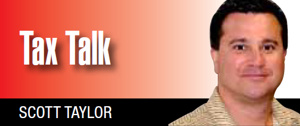Although I’ve covered this topic before, I was asked about it twice last month, first by a driver who was told to incorporate as a condition of being hired, then by a for-hire carrier wondering what the competition across the street was doing.
It must be time to revisit our old friend, the self-employed driver.
The self-employed driver or “driver service,” seems tailor-made for today’s gig economy. By contracting a driver, a fleet can add or subtract capacity without the obligations or costs of having a full-time permanent employee. What’s not to like?
How about the fact that the carrier is not paying into employment insurance (EI), the Canada Pension Plan (CPP), workers’ comp, or possibly any other benefit coverage for you? Or that there are no labor laws covering how the carrier treats you?
Or that Canada Revenue Agency hates the idea?
CRA is going to ask a lot of questions in order to determine if you are self-employed, or an employee. Who provides the tools and equipment you use? Who chooses and controls the method and amount of pay? What is your opportunity for profit or loss? Do you need permission from the payer to work for others?
Rarely does a driver-service relationship stand up to a CRA review.
The driver service issue goes beyond who pays taxes. Employment status affects how a worker is treated under the CPP, the Employment Insurance Act, Income Tax Act, Workers’ Compensation, and other labor rules.
Many carriers will “sell” you on the fact that you will pay less tax as a contract driver. But how much are you really saving? If you make $80,000 a year and have a spouse with no income, and then become a contract driver and pay your spouse $15,000 as part of an income-split-ting strategy, you will save approximately $1,200.
If you come up with another $10,000 of other expenses (you’re already entitled to your meals, so really what else is there?) you can save another $3,500.
All told that’s $4,800 – real money. But now you have to pay for your corporation, pay fees on a corporate bank account, and pay a bookkeeper/accountant to file GST/HST returns, T4/T5 slips, and file the corporate tax return. You have to send CRA monthly payments to pay the tax for your wages. You still have no WSIB or EI coverage, so maybe you’re going to pay for other disability benefit coverage on your own.
All of these will put a serious dent in your $4,800 of savings.
Then there’s GST/HST. A self-employed driver must charge GST/HST for his or her services if it exceeds the annual $30,000 gross limitation. CRA has deemed that the delivery of the “service” is considered delivered to the carrier’s office and does not fall under the zero-rated inter-lining provisions that generally govern trucking and brokers. Assuming the carrier is Canadian, GST/HST applies to driving a truck to the U.S. and back, or anywhere else.
The real crime here is that the driver is responsible for charging GST/HST on his services. If you’re a self-employed driver working for a carrier that refuses to pay GST/HST, in an audit CRA is going to hand you the bill.
On the other hand, I had a client using driver services that was burned by some of his drivers. They all had GST/HST numbers but a few of them closed their accounts. Not knowing this, my client continued to pay them HST on their earnings, and when he was audited, he had to repay CRA all the HST he had paid these guys and had received as refunds. The drivers? They didn’t get in trouble for receiving HST on canceled accounts.
It can be confusing, so do your homework. CRA has a guidebook called Employee or Self-employed (RC4110) that explains how the agency evaluates whether a relationship is business-to-business or employer-employee. You can also request a ruling from CRA (use Form CPT1). If you’re unclear about your status, getting expert help should be your next gig.
Scott Taylor is vice-president of TFS Group, providing accounting, bookkeeping, tax return preparation, and other business services for owner/operators.
Learn more at www.tfsgroup.com or call 800-461-5970.
